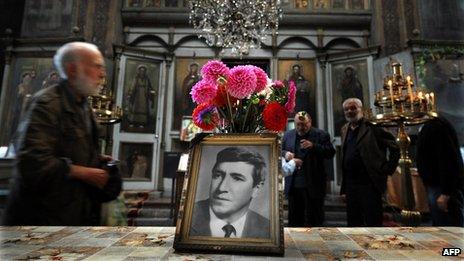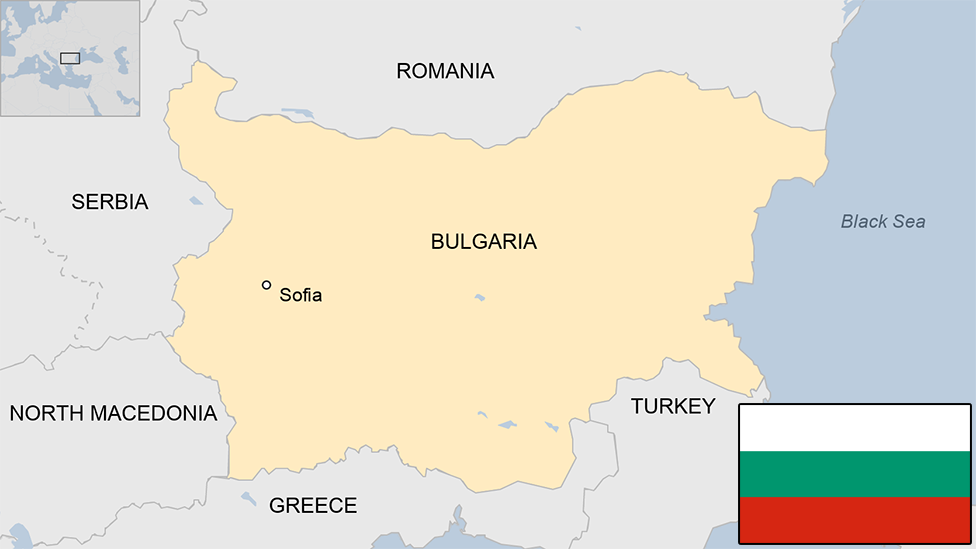Georgi Markov: Bulgaria closes umbrella killing probe
- Published

Georgi Markov's death was remembered at a church in Sofia on Wednesday
Bulgaria has closed its investigation into the infamous Cold War murder of dissident Georgi Markov in London after the statute of limitations in the case expired on Thursday, 35 years and 1 day after his death.
The exiled writer was stabbed in the thigh in 1978 by the poisonous tip of an umbrella while he waited for a bus on Waterloo Bridge.
The poison was identified as ricin.
The British inquiry into the killing remains open.
A spokeswoman for the Bulgarian prosecutors' office told Reuters that "we need to have a suspect for the crime arrested, charged or put on a search list" to overcome the statute of limitations.
"As of the moment, we have not established the perpetrator and [none] of the above actions are undertaken," Rumiana Arnaudova added.
Britain has no statute of limitations. The Metropolitan Police continues to investigate the death.
Secret files
Georgi Markov was an opponent of Bulgaria's then-Communist government and worked for the BBC World Service, among other organisations.
He died in hospital on 11 September 1978, days after the umbrella stabbing. He was 49.
The nature of the assassination and his outspoken criticism of the Communist regime in Bulgarian meant that the Soviet KGB or Bulgarian secret services were long suspected of involvement.
Secret police files from the time later identified his killer as an agent code-named "Piccadilly".
However, no-one has been brought to justice for the murder.
- Published20 January
